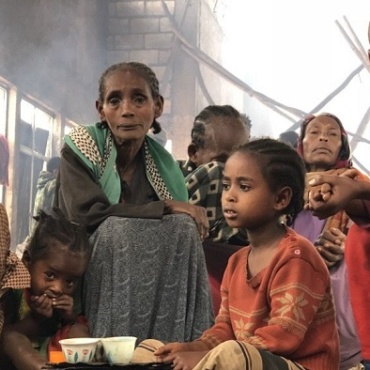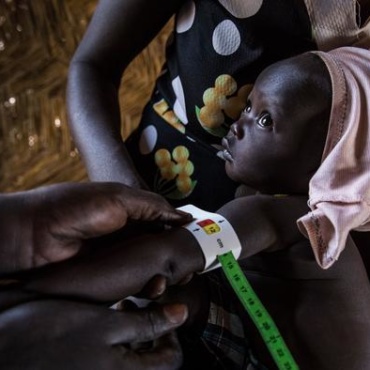Imagine Africa Spearheads Sustainable Menstruation Campaign
Women’s day has just passed and numerous programs have been held for the benefit of women all over South East Africa is so diverse that we have the best of everything in cities whereas in certain areas people still don’t have access to basic facilities like toilets. Women are the worst affected in such areas. As it is extremely unhygienic to defecate in open areas without sanitation and during menstruation, the chances of infection due to unhygienic conditions increase tremendously.
A lot of NGO’s are working towards building toilets and increasing menstrual hygiene awareness across the country. Until recently we believed that sanitary napkins were the best thing to happen to women to manage their periods. unfortunately, the side effects of the usage of these chemical loaded, toxic napkins are becoming apparent now.
NGO’s, corporates, politicians and all other entities have been donating free napkins to young girls in schools, villages and other areas where the usage of sanitary napkins was low. Many girls who had been using traditional methods like cloth pads to manage their menstruation switched to the pads as they were an easy use and throw option. Most women aren’t aware of the toxins present in them. Moreover, these discarded napkins are creating mountains of non bio-degradable trash. Water bodies are being severely polluted due to these napkins which take up to 800 years to degrade. Burning them releases deadly toxins which have proven to be carcinogenic and linked to auto-immune diseases.
Even though we have access to all this information, donation and distribution of sanitary napkins haven’t reduced by any means, in fact, it has become the norm to distribute free napkins in government schools in the name of social responsibility.
Multinational companies which manufacture sanitary napkins are fund rich and free samples are a great way to advertise their product and get more women to use sanitary napkins. It is a myth that it’s unhygienic to use traditional means to manage menstruation. the menstrual health of women who use cloth pads and other traditional means is found to be better than women who have been regularly using tampons and sanitary napkins. Fifty percent of women in East Africa have access to sanitary napkins. If all women in the menstruating age bracket start using sanitary napkins, we will be throwing up to USD 5,000,000.00 (five million) sanitary napkins annually. The sheer number is unimaginable and the environmental impact of such a large amount of toxic non-bio-degradable waste is terrifying.
Menstrual health and hygiene should be given more importance instead of blindly promoting sanitary napkins, corporates with access to CSR funding should move away from distributing millions of unsafe, environmentally unfriendly napkins and look at distributing sustainable menstrual products like menstrual cups, cloth pads, and period panties among other sustainable products. it will not only ensure better menstrual health among women, it will ensure a cleaner and greener planet by keeping away tons of sanitary waste from rotting away in landfills and waterbodies. Awareness in the hygienic management of periods along with the distribution of sustainable menstrual products in government schools and rural areas should be taken up on a war footing if we have to stem the impending environmental disaster these napkins will eventually cause. It’s alarming that schools are installing incinerators to burn used sanitary napkins in their own premises. It is extremely hazardous to breathe smoke emitted by these incinerators. Managing humongous amounts of sanitary waste is becoming a nightmare.
The present governments have given a lot of impetus to clean East Africa and we have been seeing a lot of work done in this sector. Sustainable menstrual products should be given a major push and manufacture of the same should be incentivized so that more women get on to these products soon. NGO’s and corporates should work together to create awareness among women towards the use of earth-friendly menstrual products and spread awareness on their benefits too. Government sponsored advertisements should carry the message of sustainable menstrual practices to every nook and corner of the block.
The greatest challenge facing school girls
The greatest challenge in girls’ education is absenteeism related to reproductive health issues. Studies undertaken by a variety of agencies have indicated that lack of sanitary towels is an impediment to girls’ education. A girl misses 4 days a month due to menses. This equates to 2 weeks per term and 6 weeks during a school year. Within 4 years of high school the same girl loses 156 learning days (equivalent to 24 weeks of learning). This is not only detrimental to the girl’s chance at a thorough education and successful career, but the absenteeism from schools is linked to serious developmental issues such as early marriage, FGM, HIV, verbal abuse by teachers and even infant mortality.
It is high time we stop handing over free sanitary napkins to young girls in the name of menstrual health and hygiene.


